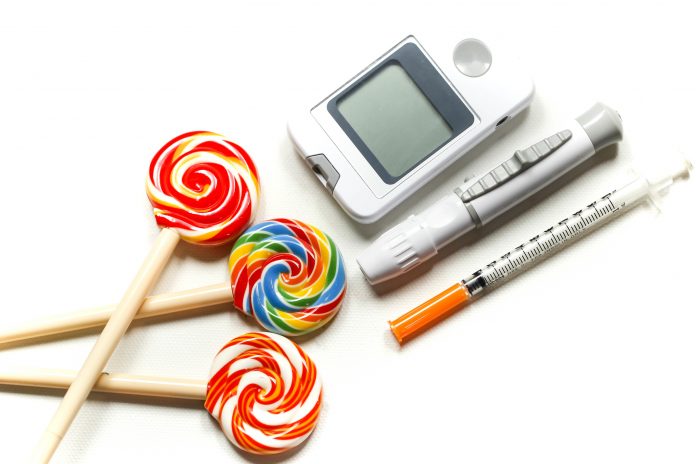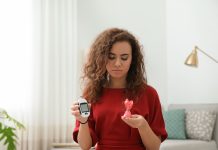The iDEAL group shares their thoughts on diet and Type 2 diabetes and explain why a person should never be judged on what they eat
Dealing with judgemental comments on diet and lifestyle are, for many people with weight management issues, an all too normal part of life. Obesity stigma is everything; research suggests 18.7% of obese people in one Western European country experience “weight bias”, rising to as many 38% of severely obese people.
For some of those who also live with Type 2 diabetes, such scrutiny of everyday choices can be still more intense, with family members, healthcare professionals or complete strangers casting aspersions on what they might happen to be eating and how it impacts on their condition. The increasing prevalence of words and phrases implying blame on an individual for what they eat – “guilt-free”, “guilty pleasure” – do little to mitigate the problem.
The UK’s Language Matters group (2018), made up of experts in diabetes care and patient advocates, have done sterling work in raising awareness of why a whole range of oft-used words and phrases in the context of diabetes (“non-complaint”), “burdened”, “uncontrolled”) can inadvertently imply blame on the part of the individual. The Language Matters position statement (2018) supports healthcare professionals to consider and develop the language used in consultations and interactions with people with diabetes to be supportive and empathetic.
The problem of bias, though, runs deeper than in our choice of language. Sometimes, our attitude to Type 2 diabetes and lifestyle, in general, does not reflect the complex and varied challenges that can prevent somebody with Type 2 diabetes – or indeed, anybody else – from eating certain kinds of foods. There can be all kinds of reasons a person isn’t eating healthily; societal, economic, cultural and other factors can all play a role, an issue compounded when a person is balancing a number of competing agendas in their lifestyles (Franklin et al, 2018).
One of the most common factors preventing a person with Type 2 diabetes from eating healthily is the cost of doing so; according to one study, a “healthy” diet now costs on average three times as much as an “unhealthy” diet and that gap is widening. With around 8.4 million people in the UK living in food insecurity, one of the highest levels in Europe, increasing spending on food by a multiple of three may not be entirely feasible. Such inequalities in the UK are becoming increasingly stark, with disproportionately high levels of Type 2 diabetes diagnoses in areas with the biggest socio-economic challenges (Qi et al, 2019).
In these areas, research shows, you’ll find five times as many food outlets that can be defined as “unhealthy” and you’re also more likely to live within 500 metres of one of them. In some, such as Blackburn with Darwen, up to 38% of all food retail outlets are fast-food takeaways.
“This is bigger than we are,” says iDEAL panel member and dietitian specialising in diabetes Anita Beckwith. “With such widespread health inequalities in the UK, many people with Type 2 diabetes may well be more concerned about keeping a roof over their head than they are about managing their condition.
“It’s very complex – we all have a choice every day in what we put into our mouths, and some of us are very lucky to have the privilege of being able to buy certain foods in certain places. But not everyone is able to do that, and there’s a lot of judgement about it.”
Dietitians can be transformative in Type 2 diabetes care pathways; in consultations they make recommendations on how a person can fit healthier meals into their own unique, individual circumstances, increasing the likelihood of success.
Taking economic and other individual factors into account is crucial; a person needs to be able to sustain a diet in order to reap from it any substantive health benefits. It’s, therefore, important to make dietary recommendations on a case by case basis, rather than issuing blanket advice that won’t be applicable for many people – especially those who are facing health inequalities or are from different ethnic backgrounds (Goff, 2019).
“Talking to someone about how they’re eating can be quite challenging as a dietitian because people automatically think we’re the food police,” Anita says. “They think it will be very much about calories and good and bad foods. Their attitudes towards food will be influenced by their upbringing, where they are in their life at the moment, and what their societal norms are. So, offering guidance on diet can be a very interwoven discussion – we have to break it down into what it is achievable and recognising what they’re able to do.”
Anita’s approach can be highly beneficial in supporting a person with Type 2 diabetes effectively; the way to facilitate positive change is not through reprimanding, judgement or dictation, but through person-centred guidance that gives people the ability to make a lifestyle change that’s right for them. The bottom line is this: people with Type 2 diabetes have the right to live their lives without the fear of being judged for what they eat. We must remember that.
The iDEAL Group is supported by an unrestricted educational grant from Ascensia Diabetes Care.
IDEAL Group















